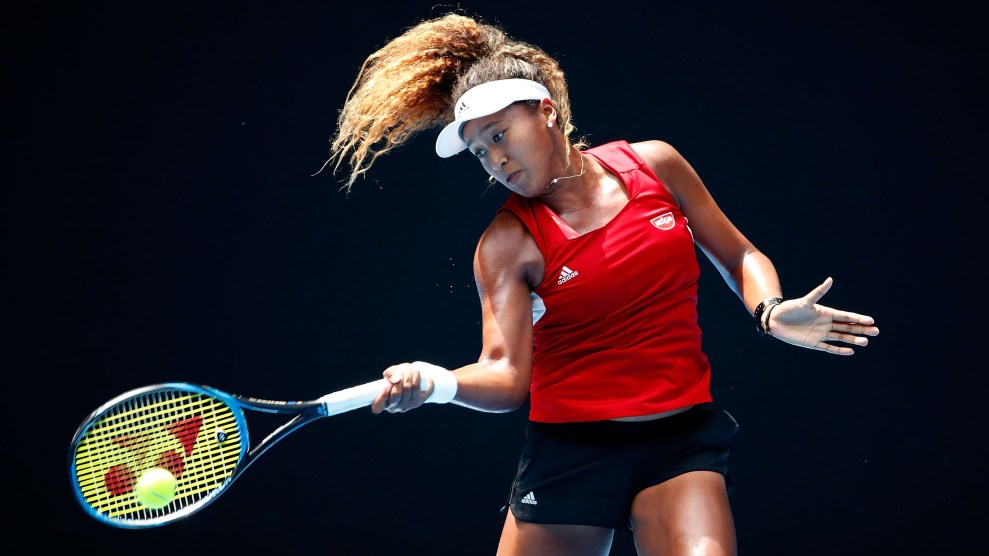
Scott Barbour/Getty
Naomi Osaka, the 23-year-old four-time Grand Slam champion, is pledging whatever winnings she makes from the Western & Southern Open to earthquake relief in Haiti, where her father is from. If she takes the title, she’ll donate more than $250,000. It’s nowhere near sufficient for the scope and scale of need, but she hopes the pledge will mobilize more sustainable steps.
The death toll from the earthquake has risen to nearly 2,000, making it the deadliest in a decade. Half a million children are left with limited or no access to drinking water, food, or shelter. Hospitals are at capacity. Rescue workers are hampered by heavy rains. And the fall of Afghanistan to the Taliban is dominating major US media attention. But aid efforts are advancing in Haiti.
Her pledge shines a light on two axioms of action: Donations can work, but only because political systems don’t. The imperatives and half-life of media focus aren’t keeping pace with need. It’s a point best made by our Mother Jones colleague Nathalie Baptiste, who wrote just weeks ago, after the assassination of Haiti’s president, that crisis is too often the engine of attention: “My mother wishes she could spend more time talking about Haiti when there isn’t a crisis,” she wrote in an essay that casts a long light on the political, historical, and cultural dynamics of Haiti. “Only when there’s a disaster, that’s when people want to know about Haiti,” her mother tells her. “The questions always sound the same too. Why is there constant turmoil? Why are institutions continually failing the people? Who will decide Haiti’s future?”
Read Baptiste’s insightful story here. And share your recharges when you have them at recharge@motherjones.com.

















